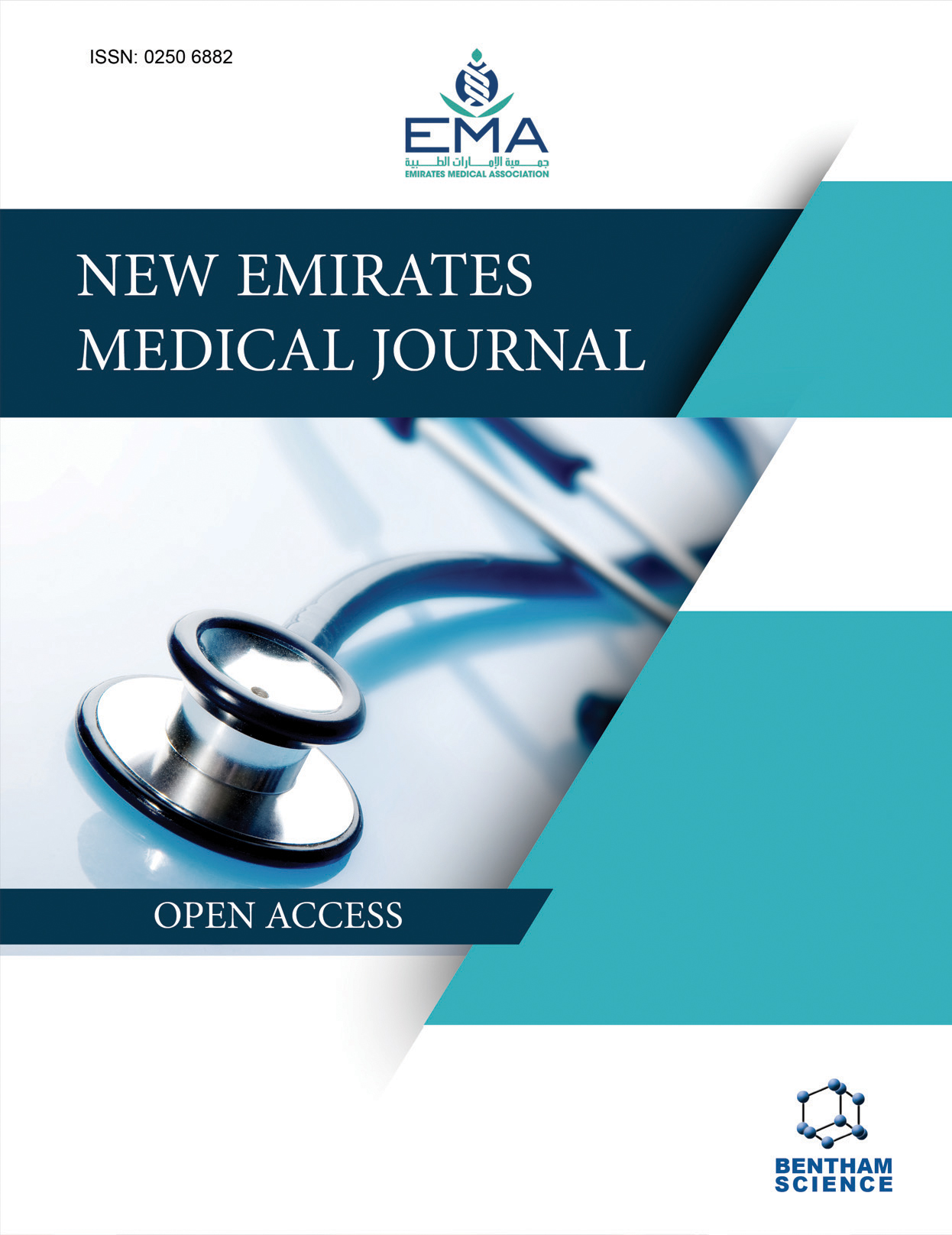-
oa Reversible Complete Heart Block in a Pregnant Woman Responding to Steroids: A rare Case Report
- Source: New Emirates Medical Journal, Volume 4, Issue 1, Mar 2023, e240123213084
-
- 31 May 2022
- 06 Dec 2022
- 09 Mar 2023
Abstract
Complete heart block (CHB) is the total absence of conduction from atria to ventricles with an escape rhythm most commonly arising from the AVN or His bundle. CHB in pregnancy is very rare, and most reported cases are due to congenital variety, where the pre-existing CHB from birth is either detected incidentally or presented with symptoms during pregnancy. Pregnancy is associated with various physiological changes, such as a pro-inflammatory, hypercoagulable state with possible oedema of the heart's conduction system, which may rarely give rise to CHB. There are no clear guidelines to manage CHB complicating pregnancy.
An asymptomatic 27-year-old lady with G2P1L1, 39 weeks of gestation with breech presentation, was referred for delivery given the low maternal heart rate of 40 bpm. Per abdominal examination revealed a term size uterus with active contractions and a fetal heart rate of 140bpm. An ECG revealed a CHB with an escape rate of 40 bpm. Other routine investigations were normal, with negative serological evaluation for hepatitis B, C, and HIV. ANA and Anti-Ro ⁄ SSA antibodies. She underwent an emergency LSCS under spinal anaesthesia with a backup temporary pacemaker (TPM). She received a short course of empirical steroid therapy for three days as there were no obvious secondary causes for CHB, which reverted to sinus rhythm after 48 hours.
CHB complicating pregnancy with or without symptoms may require definitive therapy in the form of permanent pacemaker implantation. However, the insertion of a TPM for managing pregnancy is controversial as opinion in the literature is divided. There are no reports of CHB occurring in pregnancy without congenital or other known acquired causes. In the reported case, the CHB reverted to sinus rhythm with a short course of IV steroid therapy without any subsequent need for a PPM implantation.
Congenital CHB remains the most common cause of rarely seen CHB complicating pregnancy. Through the conduction system oedema and inflammation, physiological changes in gestation may rarely cause CHB during pregnancy. In the absence of congenital CHB and other demonstrable acquired causes, a short course of steroid therapy may reverse the CHB avoiding PPM implantation as shown in the reported case.


